Executive Team
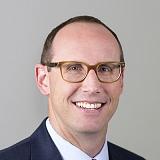
Jerry Cochran, PhD, MSW
Dr. Cochran's career has focused on aiding underserved communities. This work began in his professional experience as a social services program manager and health policy advocate for limited income/resource individuals and families within health care organizations and communities. Today, a major portion of his research program includes testing and implementing evidence based services for those impacted by substance use in rural and frontier communities and health care settings.
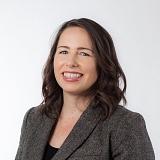
Megan E. Vanneman, PhD, MPH
Dr. Vanneman studies the intended and unintended consequences of policy change on access to care, quality of care, and costs of care in publicly funded healthcare systems (VA, Medicaid), with a focus on health equity and mental health. She is trained as a health services researcher with expertise in policy, economics, organizational behavior, decision science, and informatics.
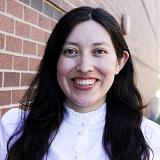
Stephanie Castro, MPH
Stephanie earned her Master of Public Health from the University of Utah in 2017. She is passionate about working with under-represented communities because of the individuals who provided assistance to her growing up as a second-generation Latina in the USA. Her interests focus on minority health and assisting underserved individuals in accessing holistic care.
Faculty
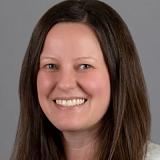
Erin D. Bouldin, PhD, MPH
Dr. Bouldin is trained as an epidemiologist and health services researcher. Her research focuses on factors that influence disability and function and ways to improve health and participation in an equitable way. She is particularly interested in the experiences and home- and community-based service needs of: people living with disabilities, injuries, and cognitive impairment; family caregivers; people living in rural areas; and military service members and Veterans.
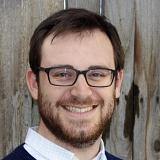
Benjamin Brintz, PhD
Dr. Brintz received his PhD (’18) from Oregon State University in Statistics. As a member of the Study Design and Biostatistics Center he regularly provides statistical consulting for research in clinical and epidemiological applications. He is particularly interested in the development of decision making tools using machine learning and has experience assessing their fairness and mitigating disparity.
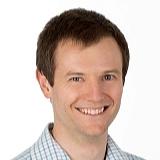
Richmond Scott Doxey, MD, CCMS
Dr. Doxey is a physician at the Sugarhouse Clinic in Salt Lake City. As an internist and culinary medicine specialist, his interests include the influence of food patterns and other lifestyle factors on chronic illness, and how to harness the power of lifestyle changes to prevent and treat chronic illness.

Audrey L. Jones, PhD
Dr. Jones’s research focuses on the integration and coordination of care for patients from vulnerable populations. She is trained as a health services researcher with a focus in mental health services, health equity research, and VA informatics. A large portion of her work tests innovative service models to improve healthcare access, experience and quality for recent and formerly homeless Veterans.
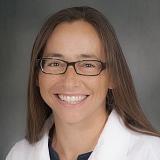
Barbara E. Jones, MD, MS
Dr. Jones is a pulmonary and critical care physician and health services researcher with a focus on pneumonia. As a clinician, Dr. Jones has sought diverse experiences including the rural West, the Navajo Nation, and Nepal to understand setting influences on practic variation. As a researcher, she employs several informatics methods, including population analytics, qualitative inquiry, decision support design and implementation to understand and improve decision-making in pneumonia for all patients in all settings.
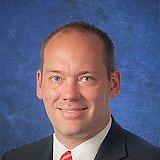
Jacob Kean, PhD
Dr. Kean's interests are in methods for disaggregating data to evaluate equity. In support of this goal, he serves on the Office of Science and Technology Policy (OSTP) Subcommittee on Equitable Data, helping to outline a strategy for measuring equity and ensuring the equitable delivery of health care and programs across the federal government.
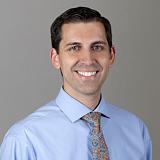
A. Taylor Kelley, MD, MPH, MS
Dr. Kelley’s work is focused on delivering equitable primary care to individuals with socioeconomic disadvantage and complex behavioral health needs. Stated simply, he believes every patient’s primary care and behavioral health needs should be adequately met, regardless of socioeconomic status. His current projects entail promoting interdisciplinary models of care and holistic measures of quality for individuals with substance use disorders through review of policy, direct observation of clinical encounters, and analysis of data using qualitative, quantitative, and mixed methods approaches.
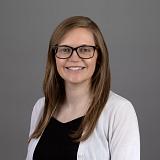
Rebecca G. Kim, MD, MAS
Dr. Kim is an early-stage physician-scientist with unique training in implementation science. She has a strong clinical foundation in the care of patients with liver disease and experience in health services research. Her current research interests focus on the development of a comprehensive understanding of the role of social determinants of health (SDoH) on disparities in patients with chronic liver disease (CLD), specifically metabolic dysfunction-associated steatotic liver disease (MASLD), and how to best address these issues to optimize the care for patients with CLD among vulnerable populations. She is committed to becoming an independently funded health services researcher in hepatology implementing SDoH interventions to reduce health disparities in CLD.
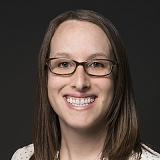
Morgan Millar, PhD
Dr. Millar is a sociologist and survey methodologist who conducts survey research and research on cancer health disparities. She is currently leading a survey of cancer survivors aimed at identifying inequities and unmet needs, with the goal of guiding public health interventions. She collaborates with investigators across all clinical domains in the design of survey studies to enhance data quality and methodology.
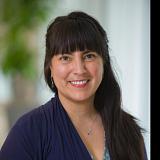
April Mohanty PhD, MPH
Dr Mohanty's mission is to advance health equity by applying methods from epidemiology, health services research, and implementation science. She is committed to excellence in care and research by serving as the University of Utah Department of Internal Medicine Vice Chair for Culture and Community. Dr. Mohanty is dedicated to supporting the next generation of diverse team-scientists and clinicians by advancing mentorship programs and collaborating to advance evidence-based strategies that lead to a culture of belonging, where we can thrive together, and all our unique identities, lived experiences, talents, and contributions are engaged, supported, and celebrated.
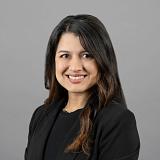
Diana Naranjo, PhD, MPH
Dr. Naranjo is a health services researcher experienced in both qualitative and quantitative methods, and the application of Diffusion and Innovation Science (i.e., Implementation Science) theories and frameworks in conjunction with Systems Science. She uses mixed methodology in her scientific investigations and evaluations as a tool to understand drivers of change in health care systems, specifically decision-making as it pertains to adopting and disseminating innovations that improve care and reduce health disparities. She is also a first-generation scholar with intersecting identities and lived experiences that provide important and unique perspectives to inform research activities seeking to improve health equity.
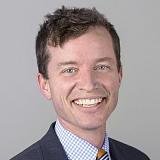
Richard E. Nelson, PhD
Dr. Nelson is a health economist and the Associate Director of the Health Economics Core of the Clinical and Translational Science Institute at the University of Utah. In addition, he is a Research Health Scientist in the IDEAS Center at the VA Salt Lake City. His research interests include evaluation of programs to improve the health and socioeconomic stability of individuals experiencing homelessness and food insecurity as well as those living in rural areas.
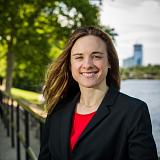
Julia E. Szymczak, PhD
Dr. Szymczak is a medical sociologist with interests in quality and patient safety, healthcare epidemiology, infectious diseases, and implementation science. Her work, informed by sociological theory, seeks to understand and modify the social determinants of decision-making to improve healthcare quality and safety while promoting equity. She is particularly interested in the adaptation of evidence-based interventions to fit the range of organizational contexts in which people receive healthcare.
Non-DOIM Faculty Affiliates
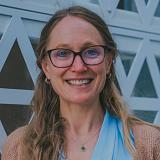
Bethany K. H. Lewis, MD, MPH
Bethany is an associate professor in the University of Utah’s Department of Dermatology with a special interest in increasing access to specialty care to under-resourced locales and underserved communities. Her subspecialty and professional interests include: acute and complex outpatient medical dermatology, store-and-forward and live video teledermatology, dermatology education of primary care providers, and global dermatology.
